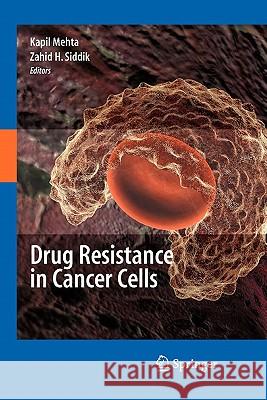Drug Resistance in Cancer Cells » książka
Drug Resistance in Cancer Cells
ISBN-13: 9781441927941 / Angielski / Miękka / 2010 / 363 str.
It was estimated that in 2008, 1,437,180 patients would receive a new cancer diagnosisand 565,650individualswould die of cancer (Jemal et al. 2008).Since the vast majority of patients dying of cancer will have had anticancer therapy, both c- ventional chemotherapy and novel targeted therapy, it can be concluded that these patients are dying with drug resistant cancer. The term multidrug resistance is also apt in that these patients die after having undergone multiple rounds of different and structurally unrelated cancer therapies. However, for some, the concept of m- tidrug resistance is a worn out idea, stemming from disappointment with the drug resistancereversalstrategiesthatwerecarriedoutinthe1990susingpumpinhibitors to block drug resistance mediated by P-glycoprotein, product of the MDR-1 gene. However, if one takes the larger de?nition multidrug resistance as simultaneous resistance to multiple structurally unrelated anticancer therapies its existence c- not be denied. The purpose of this book is to explore new concepts related to drug resistance in cancer, including resistance to the new molecularly targeted agents. Perhaps new terminology is needed for resistance that occurs following therapy with the targeted agents: Novel Targeted Agent Resistance (NTR). Alternatively, we can return to the original de?nition of multidrug resistance as simply the res- tance to multipleagents that occurs in the course of normalcancer progression.This resistance is likely to be mediated by many factors."











